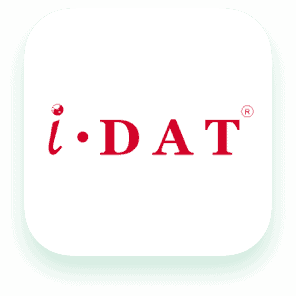I would be lying if I said that I could count on more than one hand the number of times I have been asked by prospective parents about the accreditation of the four different international schools I have worked at – and I have conducted thousands of interviews in my fifteen-year international school admissions career. So what’s the big deal about accreditation, other than the accreditation body’s logo on your school’s website and the fact that accreditors might interview you once every five years about your school’s admissions policy and process or numbers?
What is international school accreditation?
Accreditation is a process that externally validates that a school meets high standards of institutional quality through an ongoing, independent, objective process of peer review. Depending on the agency, accreditation cycles generally last from five to ten years. It is not an inspection but rather a developmental growth process starting with the school’s guiding statements and its self-study. The overall question asked by the accreditation agency to the school being accredited is: are you delivering what you promise? It is not, however, prescriptive: you do not tell the school what it should be doing.
Accreditation teams are made up of a variety of educators each assigned with the task of looking for evidence to see if the school is doing what it says it is doing in the light of some of the accreditation body’s own criteria. See the box for the domains examined by the Council of International Schools. Team members are generally assigned one or two specialist domains or areas that they are responsible for and a couple more that they back up on.
I have been on accreditation team visits to schools in Turkey, Egypt, Colombia, and the UAE, some on-site, others virtual. Most recently, I had the honor of being a co-chair on a visit.
Triangulation
A word that every accreditor is familiar with is triangulation. When examining whether or not a school meets criteria, you have to triangulate your evidence. First, you do your homework and read a ton of documentation pertaining to your domain before you visit the school. As a minimum, you would read the school’s own accreditation self study sections that pertain to you, as well as their website. You might also read home/school communications, internal policy documents, examples of student work or report cards, to name just a few.
The fun starts when the team visit begins. You and your teammates interview host school domain committee members, administrators, non-teaching staff, teachers, parents,and students to confirm that what is written matches what is said by the different stakeholder groups. You also observe – in action – classrooms, lunch rooms, gyms, parking lots, almost anything that will allow you to verify whether or not the school meets the standards it has set for itself. While observing, you can usually spontaneously interview students and teachers and ask them whatever questions you feel will help provide you with evidence.
The CIS and MSA visits that I have participated on usually run from Sunday through Thursday. Most interviews and observations are done during the first three or four days. During the evenings, and on the last couple of days, you meet with the other accreditors on your team to collectively write your report. It is a humbling experience as your writing about your section is displayed on a screen for all team members to see and scrutinized by your teammates. In the end, however, the report belongs to everyone working on it and egos are left aside for the sake of completing a high quality report in a short time. Little time is spent on wordsmithing; the focus is on content as someone else from the agency will proofread the report later. As you can imagine, it can be an extremely intensive but gratifying experience.
Domains covered by the Council of International Schools’ Accreditation Teams
- Purpose and Direction
- Governance, Leadership and Ownership
- Curriculum
- Teaching and Assessing Learning
- Student Learning and Well-being
- Staffing
- Premises and Physical Accommodations
- Community and Home Partnerships
- Boarding/Homestay/Residential
Before, During and After the Pandemic
Most accreditation work is voluntary, but accreditors typically continue to receive pay from their own school while they are on a visit. A lot of accreditors are retired and join teams to apply their expertise and stay active. Before COVID-19 hit, accreditation visits were on-site. Host schools would pay for accreditors to fly to their city, put them up in a nice hotel, wine and dine them, and provide them with transportation to and from the school every day. Since the pandemic, however, visits have been virtual so accreditors don’t receive the perks they had received before the pandemic. When this article was being written, accreditation agencies were starting to do in-person or at least hybrid (mixed online and in-person) visits. Let’s hope that by the time of publication of this article visits will already be completely in-person again.
Professional Growth and Meeting Amazing People
So why would anyone want to be an accreditor now if there are no perks and it is all work and no play? The answer is simple: professional growth and meeting amazing people.
First of all, you learn so much about the school you are evaluating. You end up asking yourself what is similar and different between it and your own school. They might be doing fantastic things that could be done at your school too with a bit of adaptation. And you ponder the differences (though on visits you never say “At my school, we do it this way… “). Are differences because of a distinct history and culture, or do they exist because of the local regulatory framework? Or are they due to something particular to that school and its leadership?
As an admissions professional, going on accreditation visits enriches your broader ability to talk about different educational systems – and education in general – with prospective families. For example, from my visits to Istanbul, I have learned how intense high school entrance exams taken during middle school in Turkey are and how that impacts the curriculum and teaching, and also leads to the provision of after school and weekend exam preparation classes for middle school students. I also learned the importance of the founder of modern Turkey, Ataturk, and the almost untouchable nature of his secular values in Turkish school mission statements. This information might only be useful during an interview with a Turkish family but I have learned many broader lessons as well. A good example is that while I have worked in schools with the IBDP, I have never worked in one that has the PYP or the MYP. During my visits, I have learned a lot about those programs and can talk about them now thanks to having been on accreditation visits to schools that offer them.
As an accreditor you can get very close to the other accreditors on your team. Each team member has their own areas of expertise and you can learn a lot from each other. In the visits I have been on, there has always been a chair and a co-chair and, for on-site visits, a secretary. Everyone else is a team member. The smallest team I have been on has been composed of six members while the largest was made up of twenty. You receive your assignment and then set up google docs and WhatsApp groups and start meeting a couple of weeks before the visit. During the visit days, you meet as a group at least once a day and when you do interviews you have a partner – one of you asks questions and the other takes notes. As mentioned earlier, at the end you scrutinize the report together. Given the intensity of the work, you develop strong bonds quickly and often stay in touch after and sometimes meet again in other visits.
You also meet amazing educators from the schools you visit. You don’t spend as much time with them as you do with the other members of your team, especially if the visit is virtual, but you have incredibly informative and rewarding conversations with them. You are often left awestruck by the incredible work being done by dedicated people in other schools.
According to Simon Camby of the CIS, a little over half of accreditors are administrators and just under half are teachers. The CIS prefers people with teaching certification, but it is not mandatory to have certification if you have a school-related expertise, like counseling or… admissions. According to Simon, the most important quality to have is being “… interested in schools and how they work… being able to stand back and have the mindset that one’s own school and own experience is not the only way to educate children.” Admissions professionals generally make great interviewers and observers and often catch the big picture of what is going on in a school better than many others, but I would add that it doesn’t hurt if you like to write.
While the accreditation process might not come up in your interviews with prospective families, the knowledge about education in different settings that you gain from being an accreditor will deepen your expertise in a variety of ways and make your interviews all the richer for it.
How to become an accreditor?
Ask friends or colleagues who have done accreditation visits before how and why they got involved, and what they get out of it. Volunteer on one of your school’s own accreditation committees and see how you like it. Contact one of the accreditation bodies below (preferably one that your school is accredited by) and ask them what they require for you to join one of their teams on a visit:
- Accreditation Service for International Schools (ASIC) – British
- Council of British International Schools (COBIS) – British
- Council of International Schools (CIS) – International
- International Baccalaureate Organization (IBO) – International
- Middle States Association (MSA) – American
- New England Association of Schools and Colleges (NEASC) – American
- Western Association of Schools and Colleges (WASC) – American
















 All Services
All Services